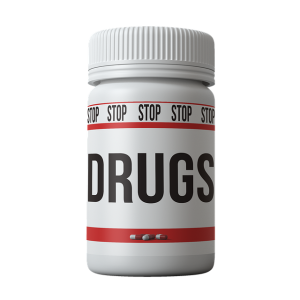Sober Pathways: Bergen County’s Transitional Recovery Housing
Bergen County, New Jersey, provides a robust network of sober living homes that serve as transitional housing for individuals transitioning from formal treatment programs. These homes offer a substance-free environment, promote personal accountability an…….

Bergen County, New Jersey, provides a robust network of sober living homes that serve as transitional housing for individuals transitioning from formal treatment programs. These homes offer a substance-free environment, promote personal accountability and communal support, and facilitate access to recovery resources. They emphasize structured living with house meetings, responsibilities, and curfews to maintain accountability. The homes are strategically placed near support groups, medical facilities, and job opportunities, aiding societal reintegration. They cater to individuals at various stages of recovery, offering a community-focused approach that encourages shared experiences and healing. The structured environment, enforced rules, and proximity to resources play a crucial role in achieving long-term sobriety and enhancing overall well-being. Bergen County's comprehensive support system reflects its commitment to providing a supportive recovery environment for those overcoming substance use disorders.
Bergen County’s commitment to supporting individuals on their recovery journey is exemplified through its network of Sober Living Homes. This article delves into the transformative power of transitional housing within Bergen County, providing a comprehensive overview of the myriad benefits it offers for those navigating life after substance use disorders. We will explore the structured environment and accountability that these homes offer, as well as the community support and resources available to facilitate long-term recovery. Financial considerations and the criteria for admission into these homes will also be discussed, ensuring individuals can find a fitting home that aligns with their needs and goals. Through aftercare programs, networking with local recovery groups, and activities designed for engagement, residents in Bergen County’s sober living homes can build a robust support system and maintain sobriety using best practices tailored to the area. Join us as we examine the role of family, accessibility, and the creation of a supportive community in Bergen County’s journey towards sustained recovery.
- Understanding Sober Living in Bergen County
- The Benefits of Transitional Housing for Recovery
- Criteria for Bergen County Sober Living Homes
- Community Support and Resources
- Overcoming Challenges in Sobriety
- Structured Environment and Accountability
Understanding Sober Living in Bergen County

Bergen County, New Jersey, offers a supportive network for individuals transitioning from structured treatment programs into sober living environments. Sober living homes in this region serve as a crucial step in recovery, providing a structured yet flexible living arrangement that fosters personal responsibility and community support. These residences are designed to help residents maintain their sobriety by offering a substance-free lifestyle alongside peer companionship, life skills training, and access to recovery resources. The homes encourage accountability through house meetings, chores, and curfews, while also promoting independence and healthy living practices. In Bergen County, these facilities are strategically placed with easy access to local support groups, healthcare providers, and employment opportunities, ensuring a seamless integration back into society. The community’s commitment to recovery is evident in the range of sober living options available, each tailored to meet the varying needs of individuals at different stages of their sobriety journey. This supportive network plays a pivotal role in empowering residents to sustain long-term recovery and lead fulfilling lives.
The Benefits of Transitional Housing for Recovery

Transitional housing, such as Sober Living Homes in Bergen County, offers a structured environment that is pivotal for individuals navigating recovery from substance use disorders. These homes provide a supportive framework where residents can acclimate to life outside of treatment centers. The benefits are manifold; residents learn to apply the skills and coping strategies acquired during rehabilitation in a real-world setting while maintaining a sober lifestyle. They experience a gradual reintegration into society with the security of a community that shares similar goals and challenges. This environment fosters accountability, as residents often adhere to house rules that include curfews, chores, and mandatory participation in recovery support groups or therapy sessions. The peer support within these homes is a powerful tool for healing; individuals can draw strength from shared experiences, encourage each other, and build a network of sober companions who are invested in mutual success. Furthermore, the proximity to recovery resources and the ability to maintain employment or pursue education while residing in a Sober Living Home can bridge the gap between treatment and independent living, enhancing the likelihood of long-term sobriety and successful reintegration into their communities.
Criteria for Bergen County Sober Living Homes

Bergen County sober living homes provide structured environments for individuals in recovery from substance use disorders. These homes are designed to offer a supportive transition for residents as they reintegrate into society and maintain sobriety. To ensure safety, efficacy, and a conducive environment for healing, the criteria for these homes are stringent and comprehensive. They must adhere to state licensing requirements, which include providing a safe and clean living space, ensuring a structured daily routine that encourages productivity and personal responsibility, and enforcing a drug and alcohol-free policy within the home. Residents are expected to actively participate in ongoing recovery programs, such as 12-step meetings or therapy sessions, while also contributing to the responsibilities of the household. Additionally, sober living homes in Bergen County must offer regular random drug testing and provide access to resources that facilitate continued growth and development in recovery. These homes foster a community atmosphere where residents can build supportive relationships with peers who share similar life experiences, which is essential for sustained recovery success. It’s the combination of structure, community, and accountability that makes these homes a vital component of the recovery journey.
Community Support and Resources

Bergen County’s commitment to supporting individuals in recovery is evident through a robust network of sober living homes that are integral to the community support system. These residences offer a structured environment that promotes sobriety and personal growth. They provide a transitional space for residents to reintegrate into society, offering the necessary stability and accountability that are crucial during early recovery. The homes often have house managers who ensure a safe and supportive atmosphere, and many are equipped with resources such as group meetings, counseling services, and educational programs. These establishments foster a sense of camaraderie and mutual support among residents, which plays a pivotal role in their ongoing healing process.
Furthermore, the network of sober living homes in Bergen County is complemented by local community resources that extend beyond the residential experience. These include outpatient treatment facilities, recovery community centers, and support groups like Alcoholics Anonymous (AA) and Narcotics Anonymous (NA), which offer additional layers of support. The collaboration between these entities ensures a comprehensive approach to recovery, providing access to a wide range of services that address the physical, emotional, and psychological needs of individuals striving for sobriety. This holistic approach underscores the county’s dedication to creating an environment where residents can achieve long-term recovery in a community that truly supports their journey.
Overcoming Challenges in Sobriety

Bergen County’s sober living homes offer structured environments for individuals transitioning from intensive treatment programs to more independent living situations. Overcoming challenges in sobriety is a multifaceted process that requires commitment and resilience. The initial phase of recovery often involves addressing the underlying issues that contributed to substance use, such as emotional trauma or psychological disorders. Sober living homes provide a supportive community where residents can engage in peer support, fostering a sense of belonging and accountability. As individuals navigate their journey, they encounter various triggers and stressors that test their resolve. The homes offer strategies to cope with these challenges effectively, including structured daily routines, therapeutic activities, and access to 12-step programs or other recovery support networks. This combination of peer support, professional guidance, and a stable living environment plays a pivotal role in helping individuals maintain their sobriety and build the skills necessary for long-term recovery success.
Structured Environment and Accountability

Bergen County’s sober living homes offer a structured environment designed to support individuals in recovery from substance use disorders. This structure is pivotal, as it provides a consistent routine and clear expectations that help residents maintain their sobriety. The homes typically operate on a shared responsibility model where residents are encouraged to take an active role in the day-to-day operations, including household chores and collective decision-making. This fosters a sense of community and shared purpose among the inhabitants, reinforcing the idea that recovery is not a solitary journey but a collaborative one. Accountability is another cornerstone of these homes; residents are held to specific standards and are regularly assessed on their adherence to the program’s guidelines. Regular random drug and alcohol testing, along with mandatory attendance at support group meetings like Alcoholics Anonymous or Narcotics Anonymous, ensures that each individual remains focused on their goal of sustained abstinence. The combination of a structured environment and accountability mechanisms provides a framework within which residents can successfully navigate the early stages of recovery, offering them the best chance to build a foundation for long-term sobriety.
Bergen County offers a structured and supportive environment for individuals seeking recovery through its sober living homes. These residences, which adhere to specific criteria, provide a beneficial transitional housing option that supports sustained sobriety. The community in Bergen County not only fosters accountability but also offers a wealth of resources to aid in the recovery journey. Overcoming the challenges of early sobriety is easier with the support network and structured environment these homes offer, setting individuals on a path towards long-term recovery and wellness.









